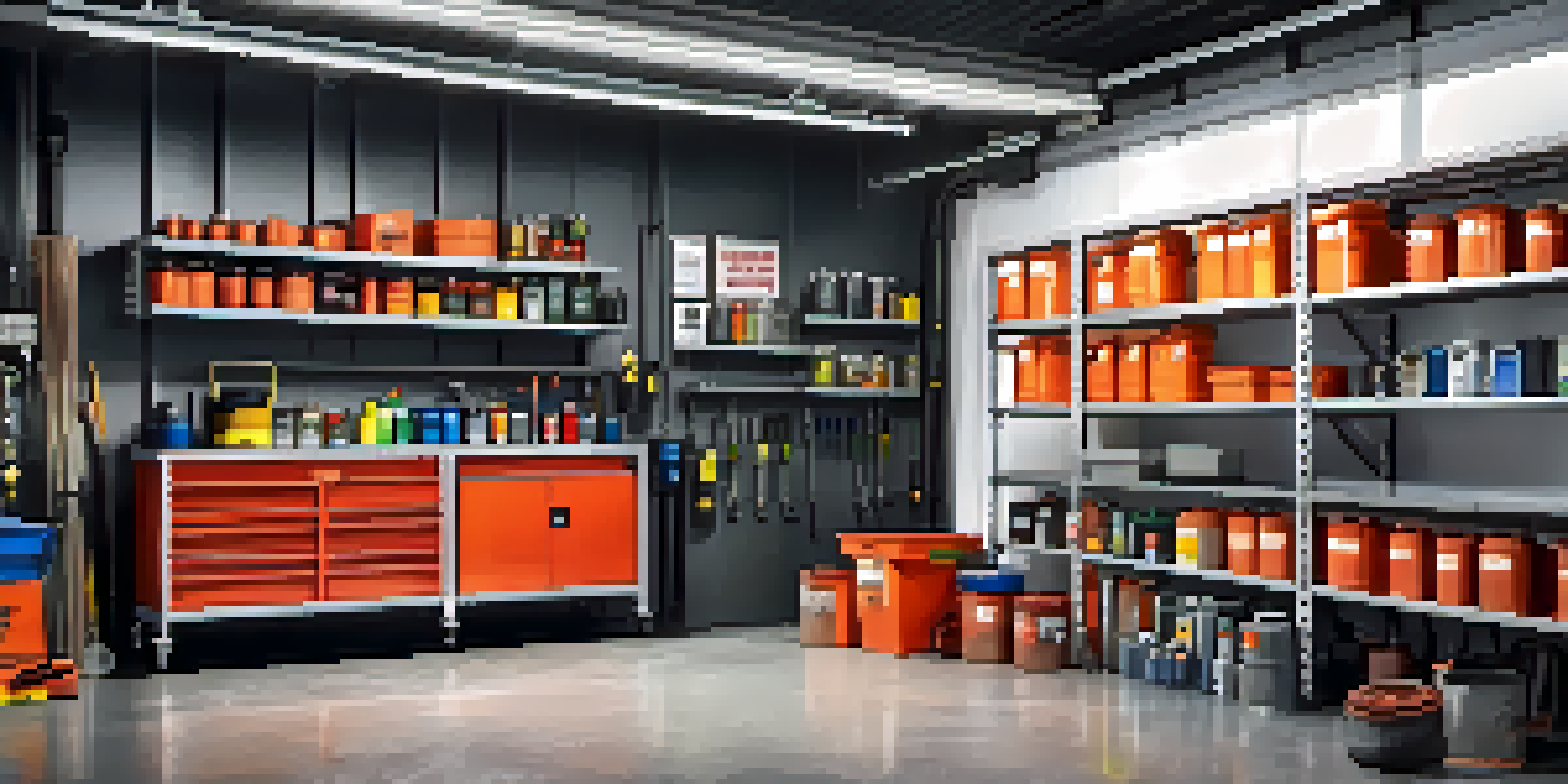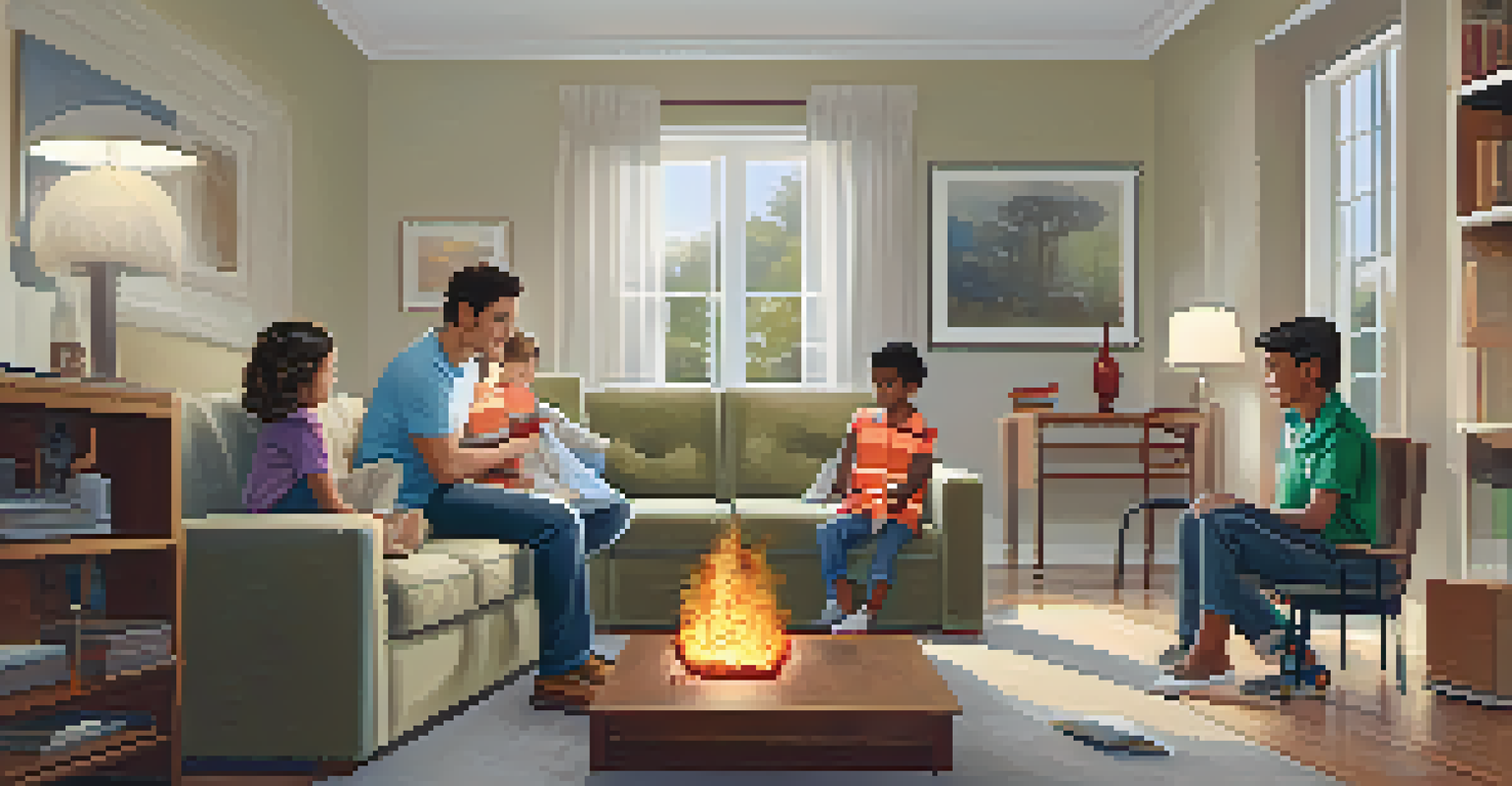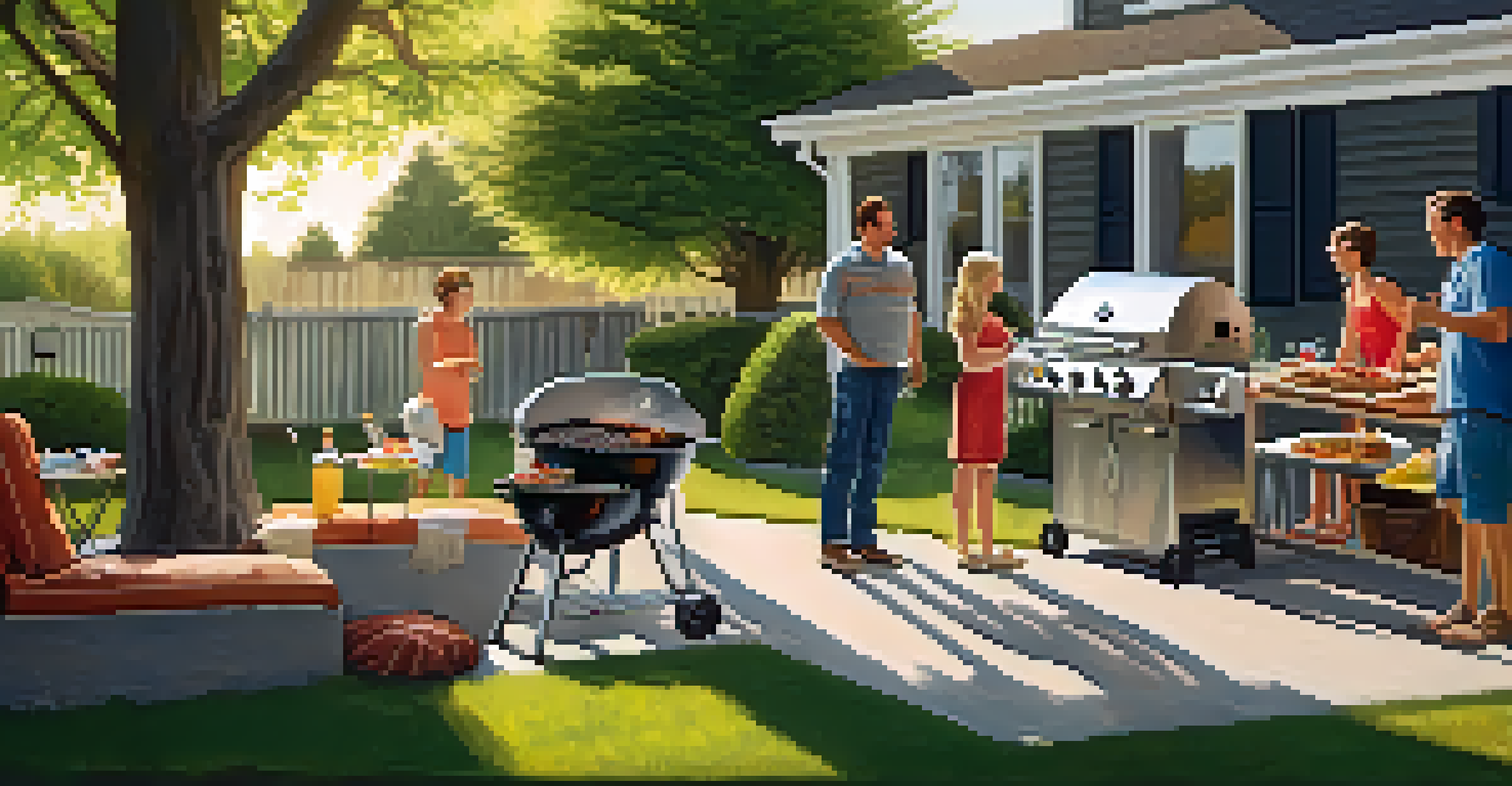Summer Fire Safety: Essential Tips for Homeowners

Understanding Fire Hazards in Your Home
As summer heats up, so do the risks of fire in your home. Common hazards include flammable materials like paper and fabric, which can ignite easily. Identifying these risks is the first step in ensuring your home remains safe during the warmer months.
Fire is never a gentle master.
In addition to the usual suspects, outdoor activities can introduce new fire hazards. Grilling, fireworks, and even landscaping can pose risks if not managed properly. Being aware of these potential dangers helps you stay one step ahead and protects your family.
Remember, fire safety starts with awareness. Take a walk through your home and yard, looking for anything that could potentially ignite a fire. This proactive approach allows you to eliminate risks before they escalate into serious problems.
Creating a Fire Escape Plan
Having a fire escape plan is crucial for every homeowner. This plan should outline how all family members will exit the house in case of a fire, ensuring everyone knows their designated routes. Practicing this plan regularly helps everyone stay calm and act quickly in an emergency.

Make sure to include multiple escape routes, especially if you live in a multi-story home. Designate a meeting spot outside where everyone can gather safely. This not only helps keep your family safe but also assists emergency responders in knowing everyone is accounted for.
Identify Fire Hazards at Home
Recognizing and addressing potential fire risks in your home and yard is essential for summer safety.
Don't forget to update your escape plan as your family grows or changes. Regularly reviewing and practicing your escape plan keeps fire safety fresh in everyone's mind, making it easier to remember during a stressful situation.
Inspecting and Maintaining Smoke Alarms
Smoke alarms are your first line of defense against fire, so regular inspections are essential. Test your alarms monthly to ensure they are functioning properly. Remember to replace the batteries at least once a year, or consider investing in alarms with sealed batteries that can last up to ten years.
An ounce of prevention is worth a pound of cure.
In addition to testing the alarms, it's important to replace any smoke detectors that are over ten years old. Check the manufacturer's date and take action if necessary. An outdated alarm may not alert you in time, putting your safety at risk.
Consider installing smoke alarms in every bedroom and on every level of your home, including the basement. The more coverage you have, the better prepared you'll be should a fire break out, giving you peace of mind throughout the summer months.
Safe Grilling Practices for Summer BBQs
Summer is synonymous with barbecue season, but grilling can pose fire risks if not done safely. Start by placing your grill at least ten feet away from your home and any flammable materials. This simple step can prevent a fire from spreading if an accident occurs.
Always keep an eye on your grill while cooking. Never leave it unattended, as this can lead to flare-ups that might get out of control. If a fire does start, knowing how to respond quickly can make all the difference in keeping your family safe.
Create a Family Escape Plan
Establishing and practicing a fire escape plan ensures that everyone knows how to exit safely during an emergency.
Finally, be sure to clean your grill regularly to remove any grease buildup, which is highly flammable. A clean grill not only reduces fire hazards but also ensures better cooking results. Remember, safety and delicious food can go hand in hand!
Proper Disposal of Fire Pit Ashes
Fire pits are a great way to enjoy summer evenings, but improper disposal of ashes can lead to fires. Always assume that ashes are still hot and handle them with care. Use a metal container with a lid to store used ashes until you are sure they are completely cool.
Never dispose of ashes in plastic bags or containers, as they can easily melt and ignite. Instead, wait at least 24 hours before disposing of the ashes in your compost or trash, ensuring they pose no risk of fire. This extra precaution can save your home from a potential disaster.
Consider recycling your ashes in your garden as they can provide beneficial nutrients to the soil. Just remember to check for any remaining heat before using them. This way, you're taking care of your garden while also being fire-safe!
Storing Flammable Materials Safely
Homeowners often overlook the importance of proper storage for flammable materials. Items like gasoline, paint thinners, and cleaning products should always be kept in a cool, dry place away from heat sources. This simple practice can significantly reduce the risk of accidental fires.
Use clearly labeled containers to store these materials, and keep them out of reach of children. Following the manufacturer's instructions for storage is essential for safety. Taking these precautions protects not only your home but also your loved ones.
Educate on Fire Safety Practices
Teaching your family about fire risks and safety measures fosters a collective responsibility for preventing fires.
Regularly check your inventory of flammable materials and dispose of anything you no longer need. This not only reduces clutter but also minimizes potential fire hazards in your home. A little organization can go a long way in ensuring summer safety.
Understanding Wildfire Risks and Preparedness
In many areas, summer also brings the risk of wildfires. Understanding your local wildfire risks is crucial for your safety. Familiarize yourself with fire danger ratings and alerts in your area to stay informed and prepared.
If you live in a wildfire-prone area, consider creating a defensible space around your home. This involves clearing away dead vegetation and maintaining a fire-resistant landscape. A well-maintained yard can act as a buffer against encroaching flames.

Stay updated on any evacuation orders or alerts from local authorities. Having an emergency kit prepared with essentials can make a significant difference when time is of the essence. Being proactive about wildfire safety can provide peace of mind during the summer months.
Educating Your Family About Fire Safety
Education is a powerful tool when it comes to fire safety. Make sure everyone in your household understands the dangers of fire and what to do in case of an emergency. Simple discussions can help reinforce the importance of fire precautions.
Incorporate fun activities like fire safety drills to engage your family and make learning enjoyable. These exercises not only teach valuable skills but also help reduce fear around the topic of fire. Empowering your family with knowledge can help them feel more secure.
Consider creating a family fire safety pledge, where everyone commits to practicing safe behaviors. This shared responsibility fosters teamwork and makes fire safety a collective effort. Together, you can create a safer summer environment for everyone.